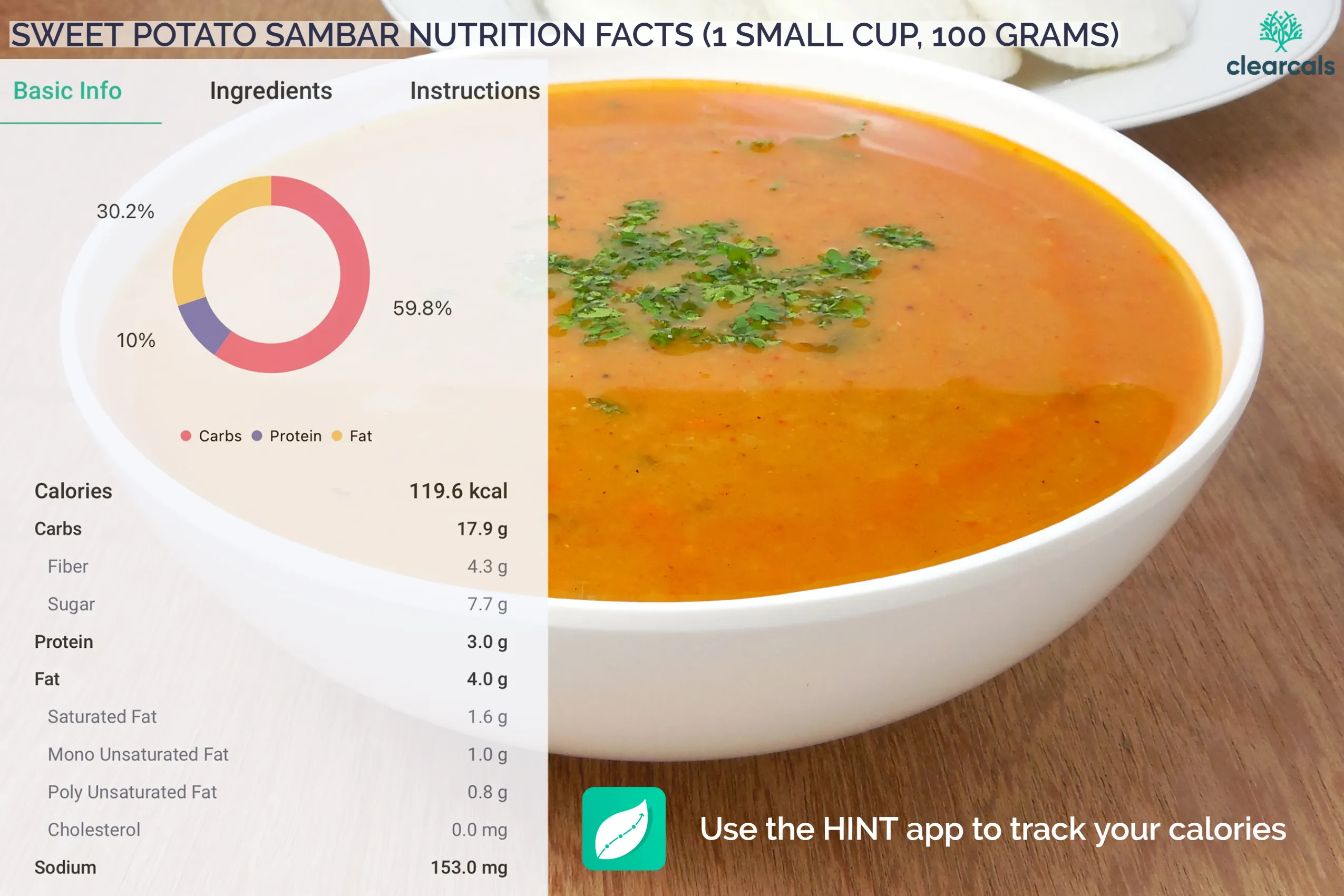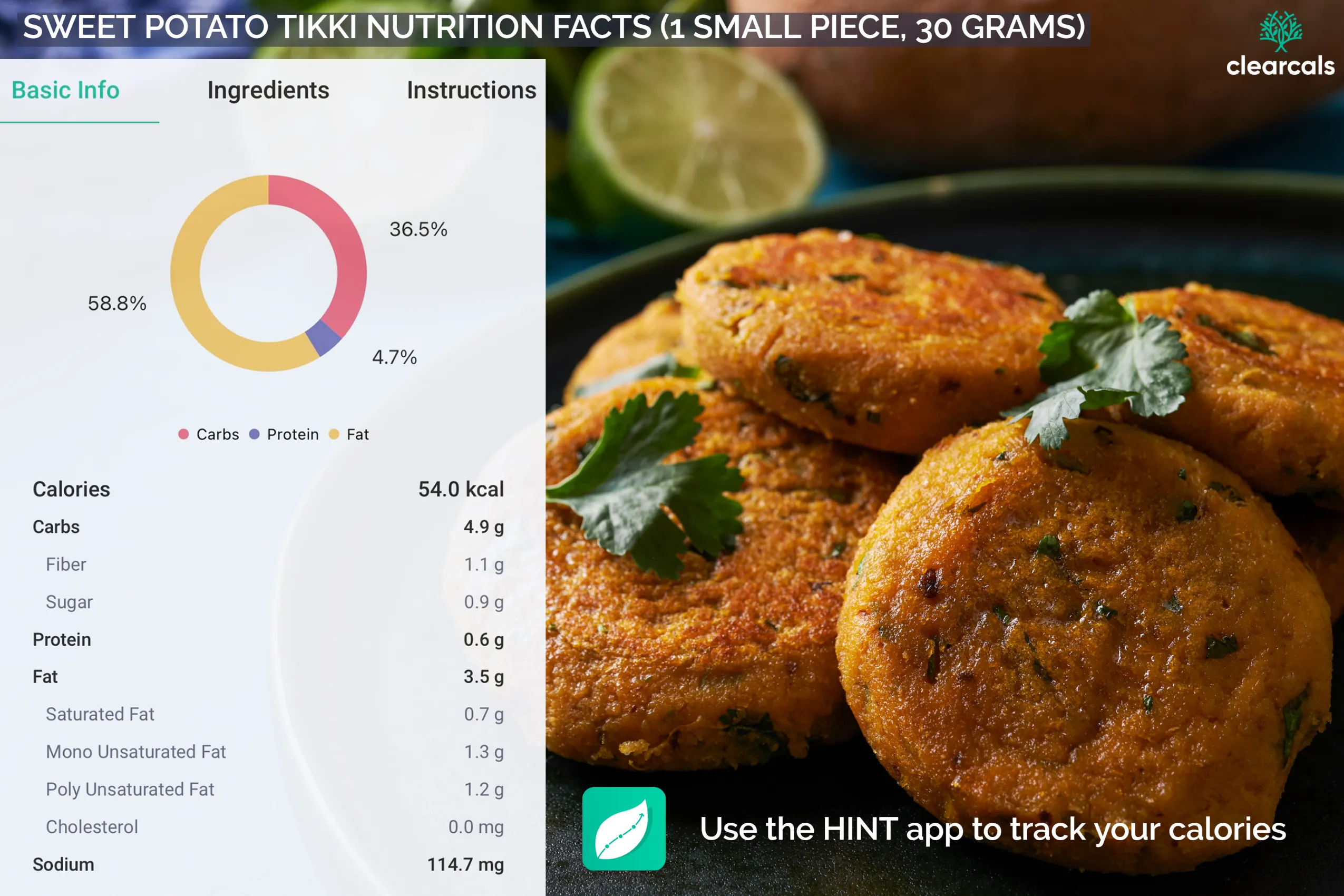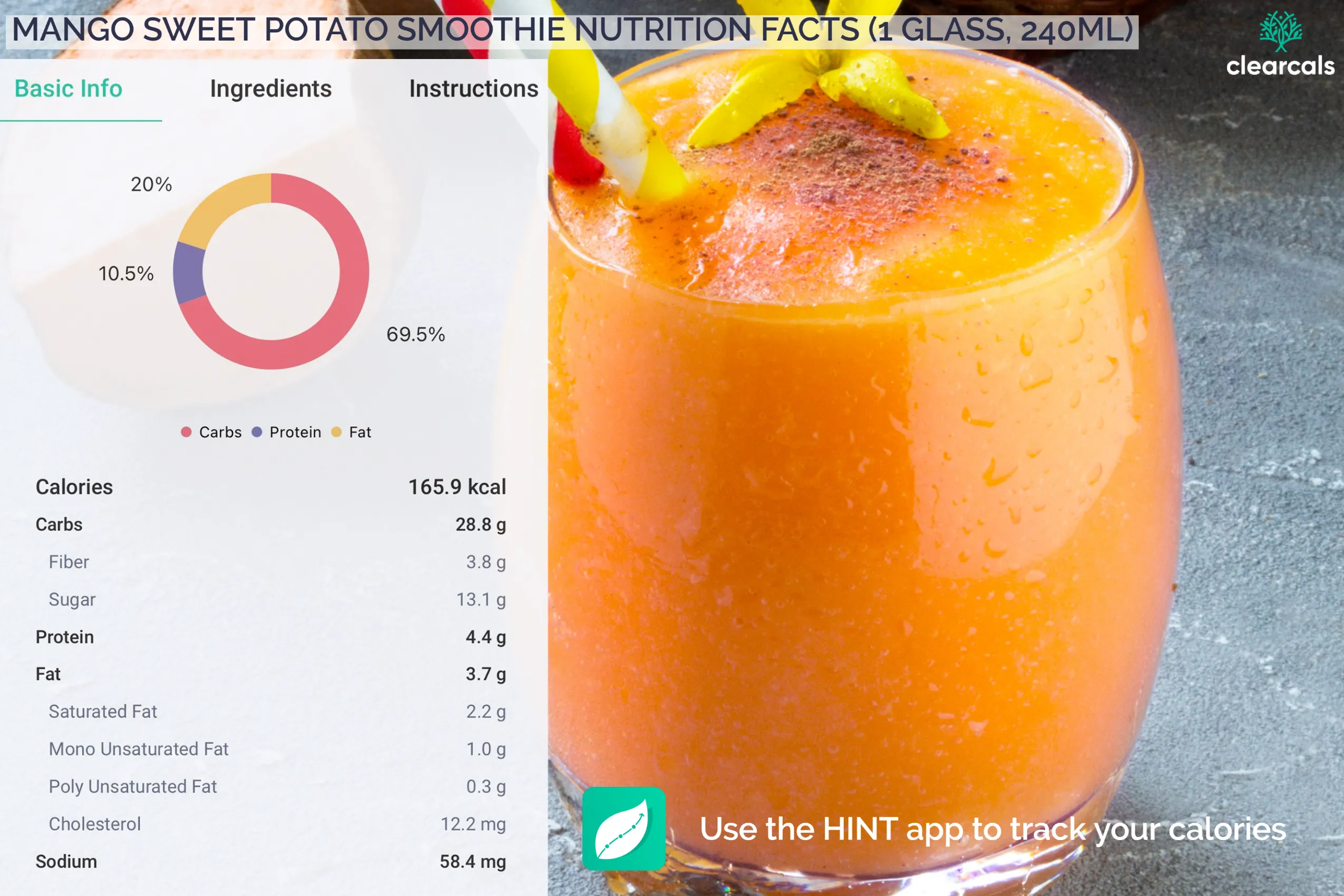Looking for a Personalized Diet Plan?
Is Sweet Potato Good for Diabetes?

TLDR
- Sweet potatoes are a great source of antioxidants that help boost immunity.
- Sweet potatoes are good for the eyes as they include carotenoids.
- Glycemic index of sweet potatoes varies based on the style of cooking.
- Sweet potatoes are not a healthy dietary choice for individuals with diabetes as the type of sweet potato preparation and its portion size significantly impact the blood sugar level.
Sweet Potato Calories and Nutrition
There are versatile nutrients like bioactive carbohydrates, proteins, lipids, and carotenoids in different parts of sweet potatoes like the stem, tuber, and leaves1.
100 grams of sweet potato contains 52 kcal. 93% of these calories are from carbohydrates, 5% from protein, and 2% from fat.
Sweet potatoes are an excellent source of vitamin A (in the form of beta-carotene). They are also a very good source of vitamin C, manganese, copper, pantothenic acid, and vitamin B6. Additionally, they are a good source of potassium, dietary fiber, niacin, vitamin B1, vitamin B2, and phosphorus.

Benefits of Sweet Potato

Sweet potatoes have various health benefits such as antioxidative, hepatoprotective, anti-inflammatory, antitumor, antidiabetic, antimicrobial, anti-obesity, and anti-aging effects1.
1. Rich in antioxidants
Sweet potatoes have antioxidants like anthocyanins from purple sweet and carotenoid β-carotene from yellow or orange sweet potatoes. These antioxidants fight against free radicals in our body, prevent cancer and boost immunity2.
2. Provide energy
Sweet potatoes are a great source of carbohydrates. Hence, sweet potatoes provide instant energy.
3. Rich in vitamin A
Sweet potatoes contain a good amount of carotene. They are good for the eyes as they are a rich source of Vitamin A.
4. Hepatoprotective effect
According to a study, sweet potato helps to improve borderline hepatitis as anthocyanin protects against injury caused by hepatotoxins2.
5. Good for cognitive health
Another study, also reported that purple sweet potatoes exhibit memory-enhancing effects2. Studies have been carried out attempting to explain the neuroprotective effect of sweet potatoes.
Sweet potatoes are a popular and nutritious root vegetable enjoyed in many parts of the world, including India.
They are often hailed as a healthy choice in your diet, but is sweet potato perfect for diabetes? Let's take a closer look.
Glycemic Index of Sweet Potato
The glycemic index (GI) is a measure of how quickly a food raises blood sugar levels. Foods that have high GI are absorbed and digested quickly. This can cause a rapid increase in blood sugar. Foods with a low GI are absorbed and digested more slowly, leading to a slower and more sustained increase in blood sugar.
The glycemic index of sweet potato varies based on the way it is cooked5.
| Type of sweet potato | Glycemic index |
|---|---|
| Boiled sweet potato | 44 |
| Orange sweet potato | 77 |
| Sweet potato baked for 30 mins | 91 |
| Sweet potatoes deep fried for 5 mins | 58 |
Hence, sweet potatoes cannot be advised for people with diabetes as their glycemic index differs based on the cooking style of these sweet potatoes and the recipe.
Sweet potato for diabetes
According to a study done on mice with diabetes, it was found that sweet potatoes had an antihyperglycemic effect3.
However, this study was done on animals and required significant research on humans.
Based on another study, conducted on aged residents with T2DM in long-term care institutions. It was found that their nutritional status was improved along with the glycemic control4.
However, this study was done on a small set of 54 people who were unable to take it orally. Hence, it is not sufficient to conclude that sweet potatoes can help control blood sugar levels in diabetic individuals.
Sweet Potato Indian Recipes
If you like eating sweet potato recipes and have them as part of your diet occasionally, you should be aware of how it is prepared and the resulting nutrition profile of the recipe.

1. Boiled sweet potato
One small cup (100 grams) of boiled sweet potato contains 52 kcal calories. 92.7% of this calorie is from carbohydrates, 5.1% is from protein and 2.2% is from fat.
Boiled sweet potatoes are an excellent source of vitamin A (in the form of beta-carotene). They are also a great source of vitamin C, manganese, copper, pantothenic acid, and vitamin B6.
Despite it being nutrient-rich, individuals with diabetes should avoid boiled sweet potato as it is mostly carbohydrates and could certainly cause a spike in blood sugar.

2. Sweet potato sambar
One small cup of Sweet potato sambar contains 120 kcal calories.59.8% of these calories are from carbohydrates, 10% are from protein, and 30.2% are from fat.
Sweet potato sambar is a good source of fiber, lutein, copper, manganese, and an excellent source of vitamin D, and beta-carotene. It helps strengthen bones and boosts immunity.
Individuals with diabetes can have sweet potato sambar in moderation along with other high-protein foods.

3. Sweet potato tikki
One small piece of Sweet potato tikki contains 54 kcal calories. 36.5% of this calorie is from carbohydrates, 4.7% is from protein, and 58.8% is from fat.
It is a good source of potassium, dietary fiber, niacin, vitamin B1, vitamin B2, and phosphorus.
Individuals with diabetes should avoid sweet potato tikki as it is deep-fried and high in fats.

4. Mango sweet potato smoothie
One glass of Mango sweet potato smoothie contains 166 kcal calories. 69.5% of this calorie is from carbohydrates, 10.5% is from protein, and 20% is from fat. Mango sweet potato smoothie is a good source of probiotics, dietary fiber, calcium, phosphorus, copper, manganese, pantothenic acid, biotin, and vitamin B12 and an excellent source of vitamin C and vitamin D.
It makes a perfect pre-workout meal and aids in weight loss.
Individuals with diabetes should avoid mango sweet potato smoothie as it is high in sugars and carbohydrates.
Conclusion
It's important to note that the effect of sweet potatoes on the blood sugar levels of individuals with diabetes depends on how much you eat and how they are prepared.
The glycemic index of sweet potato varies based on the style of cooking i.e. is sweet potato boiled, baked, or fried.
Sweet potatoes can be a high-calorie food when they are cooked with added sugar or fat, and consuming too much of them can contribute to weight gain, which can worsen diabetes.
It's also important to consider the other foods you are eating with your sweet potatoes, as well as the portion size of the dish.
Hence, sweet potatoes cannot be a healthy dietary choice for individuals with diabetes as the type of sweet potato preparation and its portion size will impact the blood sugar level rise.
If you are looking to change your lifestyle and manage diabetes, we recommend you get some help in this process by subscribing to our diabetic diet plan.
Download the Hint app and go to the Hint store to get a personalized diabetic diet plan created for you.
For better control of your diet, use the Hint app to change your lifestyle by improving your eating habits and physical activity level.





